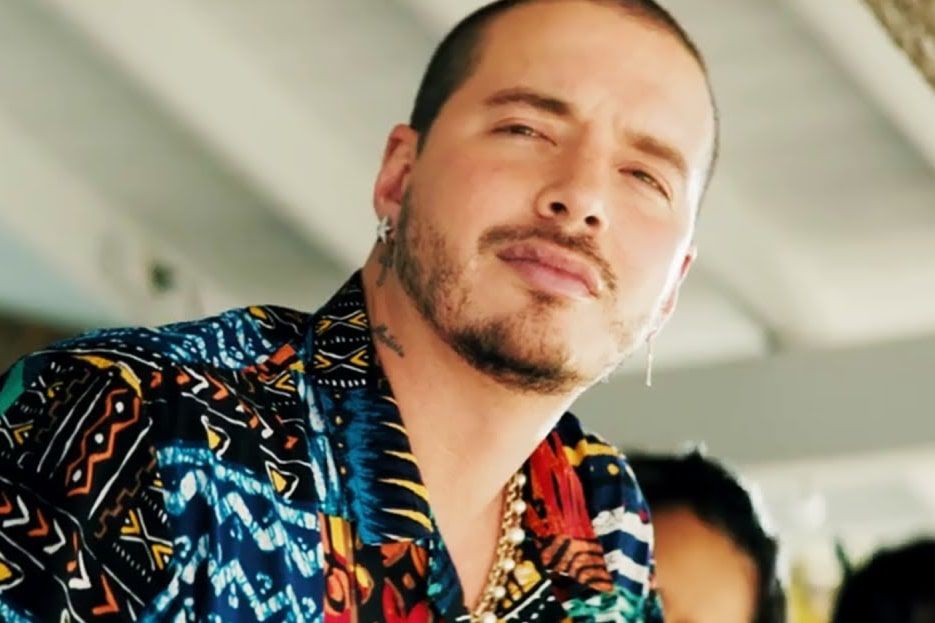J Balvin to return to Cancun on January 20, 2022, with Neon Festival
It will be a five-day festival in Cancun where J Balvin will make his triumphant return after two years without setting foot in the Mexican Caribbean.

Colombian singer J Balvin will return to Cancun to present a show never seen before because this will be not only a concert but a festival that will last five days, this will be one of the most anticipated shows in the country as it will mark the beginning of a successful tour in new normality, this event will be focused on a larger audience lover of reggaeton and urban genre.
This festival starring J Balvin will be full of spectacle and it is very likely to have special guests among its surprises, it will also be an extension of his international tour that will come as a result of his next release that will probably be titled Neon and will go on sale on September 10th so the famous singer will bring new music and new hits to the city of Cancun.
The event will be held from January 20 to 24, 2022, which means that after the New Year and New Year's holidays we will have the Colombian singer performing once again in these Caribbean lands J Balvin is one of the most recognized artists of the last decade and besides being an influencer is a trend in social networks so his music at every certain moment becomes the number one, currently has postulated several hits in the top 10, where is the theme 'In Da Getto' which plays with DJ Skrillex.
It was on April 19, 2019, that J Balvin performed in the facilities of what was The City, the largest disco in Latin America, before the pandemic and last Spring Break festival held since then, at that time J Balvin achieved a full house as expected and many people were left without tickets as the Colombian is a figure of music and pop culture folklore.
J Balvin joins an expected number of shows that are shaping up to be able to take place in the new normal, Christian Nodal will be another concert so awaited by the public, and theaters are also expected to open for Stand Up presentations and musicals that are a success at the box office.
Why is J Balvin the most successful Colombian musician in the world
With his acclaimed performances at festivals such as Coachella and Lollapalooza, the artist reaffirms that he is a global icon and is going through the best moment of his career. This was his path to success. But that day, in front of some 100,000 people, Colombian J Balvin made history. Not only was he the most eagerly awaited artist on a stage where indie rock, punk, and hip hop bands are often on display, but when he came out, he put on an unforgettable show and got thousands of Americans to dance reggaeton and sing in Spanish.
In April, just a few months ago, he had done the same thing at the Coachella festival, another of those icons of Anglo music, with a couple of performances that won accolades from the world's press. "Balvin subjected Coachella to the power of the reggaeton," wrote the Madrid daily El País, and "Presented one of the most striking and elaborate sets in the history of the festival," said Variety of the United States.
It wasn't the only thing. In June, just in the time between those two presentations, Balvin announced that he was on the payroll of Scooter Braun, one of the most famous managers in the United States, who handles artists such as Justin Bieber, Kanye West, and Ariana Grande. That coincided with the good reviews of the specialized media to Oasis, the new album of the Colombian, and the Puerto Rican Bad Bunny.
In just four months, José Álvaro Osorio, his first name, showed why he is the most famous Colombian musician in the world. And if a few years ago Shakira, Juanes, or Carlos Vives held that position, today nobody disputes that he belongs to Balvin. He is the fourth most heard artist on Spotify worldwide, with 54 million listeners each month, and the first Latino to reach 1,000 million reproductions on Apple Music.
He fills stages in countries as different as Turkey or the United States and rubs shoulders with personalities like Barack Obama, who invites him to his political rallies. Not in vain, The New York Times says that "he is rewriting the rules of what it means to be a Latin superstar in an era of smartphones and social networks.
For many music experts, that's because Balvin, before any other Latin American artist in the urban genre, understood that the success of music was global, and began to mix the reguetón with more universal rhythms such as electronic, hip hop, and more pop sounds. He himself has said it in his interviews: "I make music as a Latin, but I recognize myself as a citizen of the world. And as such I have to make music to connect people from Medellin, Thailand, or Australia.
That meant moving away from the characteristic aesthetics of the genre, full of sexist lyrics, videos with voluptuous women, and guys with chains. And to approach a more universal concept, similar to that of Justin Bieber or Bruno Mars. Quite an evolution for someone who began his career imitating Daddy Yankee.
As Mariangela Rubbini, director of Shock magazine, says: "He made the urban genre look cool. With 'Machika' and 'Mi Gente' (songs from 2017) he left everyone speechless because he was very clever in mixing Latin rhythm, dance and essence with the sounds they like outside.
That's in addition to his personality. Since he started in music, Balvin has said he wants to "eat the world. And he has struggled every day of his life to make it happen. Not for nothing do many of his friends refer to him as a tireless worker with clear dreams and goals.
In the same way, and unlike many in the industry, he has a quiet life: he meditates, does not take drugs, is not an alcoholic, and always tries to eat healthily and exercise. He also talks openly with his followers about his problems of depression, anxiety, and how difficult music is:
"It's a competitive and energetically super-violent industry," he once told El Tiempo. "And if you let yourself be poisoned, you're going to go crazy."
Thus, following his heart, he also became an icon of fashion, his other passion. He was the first Latino to be invited as an ambassador to New York Fashion Week and has represented brands such as Chanel, GEF, and Guess. Achievements that still fill with rage many of his critics in Colombia, who still consider him a stew or a ñero, without realizing that for the rest of the world today represents the coolest of global music.
From the street to the top
But he's used to that kind of criticism because from a very young age he had to deal with stereotypes. At the beginning of the 2000s, the streets of Medellín began to feel furious with the reggaeton coming from Puerto Rico, and artists like Tego Calderón, Ivy Queen, or Don Omar had taken over the radio stations. But he walked the city with his records under his arm, sang at the barbershops, and knocked insistently on the doors of the stations.
At that time, a large part of society was very suspicious of the reggaeton, which they believed to be a passing fad. And Colombians who wanted to enter the genre were quite rejected. Even so, and especially in the capital of Antioquia, they began to gain space. Balvin, 19, was one of the most persevering. He had been a fan of rock, and of groups like Metallica or Nirvana (of which he still has a tattoo that enrages the purists), and after a trip to the United States, he had become a rapper. But with the reggaeton, he found his true voice.
Perseverance paid off, as he ended up as Medellín's number one, and, over time, he began to dominate the national charts. With Ella I was captivated, the 2009 song, which already featured some electronica and more pop rhythms, became a phenomenon in Bogotá. He remembers it as a great achievement because in the capital they saw the Colombian reggaeton as the lowest on the music chain.
But he wasn't satisfied with that. With vision, good contacts, and a team that helped him innovate his music, mix Latin rhythms with the most Anglos and produce a show of high bill, he also managed to reach the top of the world. Now, although many may think he's reached his peak, it's clear that he considers himself unstoppable. And maybe so, as he says in his song Mi Gente, his first worldwide success: "The party doesn't stop, it just starts.




